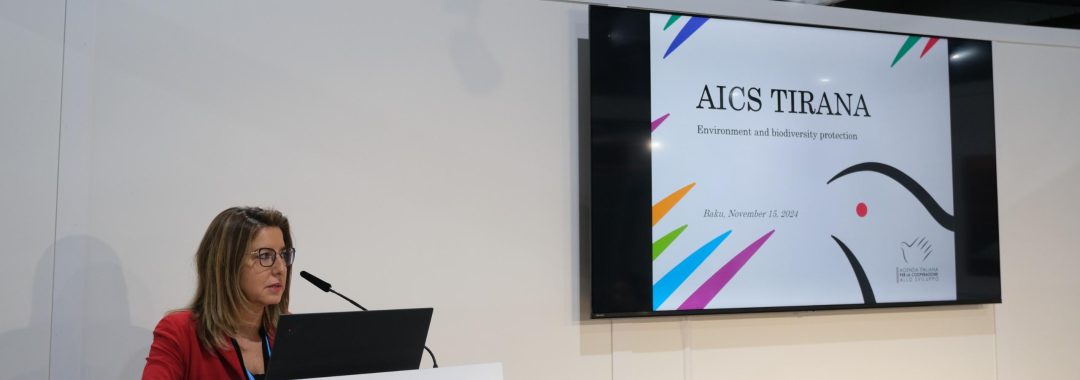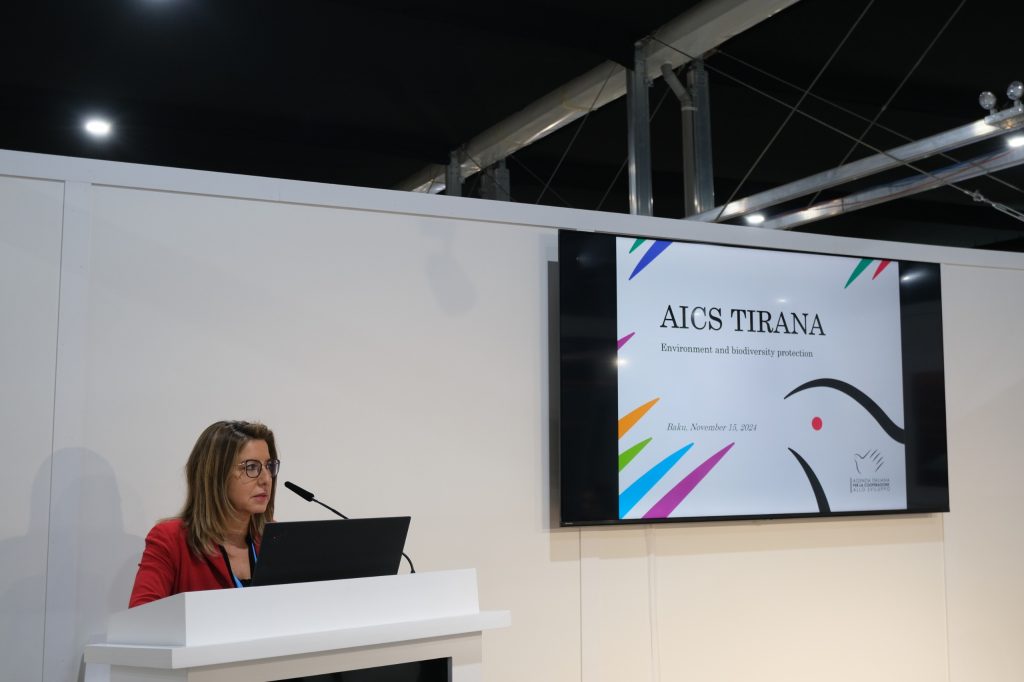On November 15th, a side event dedicated to the Mediterranean area took place in Baku at the Italian Pavilion at COP29. Mediterranean region is warming up at a higher rate than the global average, with significant consequences on natural resources, biodiversity, social and economic stability. In terms of global warming, Mediterranean area comes only after the Arctic area.
In a context of global temperature increase up to 1.5°C, it is expected that 18% of the Mediterranean population will be subject to water scarcity. Moreover, the sea level began to rise as early as the last century at an average of 1.4 mm per year. In addition to reducing coastal land for agriculture, this rise affects underground reserves of drinking water, effectively reducing the amount of water that can be used for human and agricultural use. The Mediterranean Sea is home to 7.5% of global marine biodiversity. At the same time, the increase of drought is becoming an alarming fact, putting national economic activities and especially urban societies at risk.
AICS side event, opened by AICS General Director Marco Riccardo Rusconi, gave the opportunity to discuss innovative solutions and development initiatives carried out by AICS Tirana in the Western Balkans area, thanks also to the support provided by the Union for the Mediterranean, represented by the Senior Deputy Secretary General, Grammenos Mastrojeni and by UNDRR (United Nations Office for Disaster Risk Reduction), represented by Luca Rossi, Senior Coordinator of the Early Warnings for All (EW4A).
AICS Tirana Deputy Head of Office, Letizia Fischioni, had the opportunity to present the local office’s strategy in the Environmental sector, starting from the three projects – NaturAlbania, NaturBosnia and NaturKosovo – which have given the imprinting to the whole activities currently underway in the Western Balkans area. These are projects that combine the protection of natural heritage and biodiversity with the development of a sustainable tourism model, working on two parallel ways: with local authorities to protect the natural heritage and with local communities to benefit from sustainable tourism in which a safeguarded and well-maintained natural environment – in addition to reducing the effects of global warming – can generate employment and economic development.
Environmental protection is therefore not only a required action, in order to reduce the consequences of climate change, but above all it is a strategic approach to develop areas and communities in a more sustainable way.




